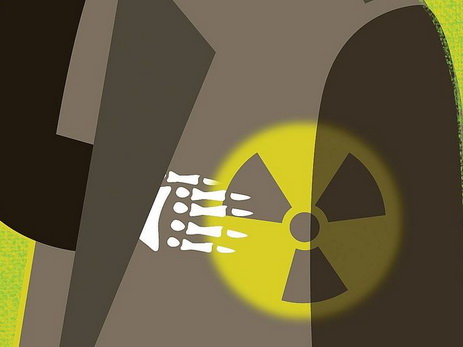Washington Times: Armenia’s nuclear material could be used to arm a dirty bomb

By Alexander Murinson
The fourth Nuclear Security Summit was recently hosted in America’s capital by President Obama. Optimists contend that the summit’s message of nonproliferation resonated with both nuclear and nuclear-threshold nations alike.
The reality, however, is that lacking any teeth in terms of oversight, credible or reliable sanctions on nations who “break the rules,” Mr. Obama’s efforts were likely a nice opportunity for world leaders to hold important meetings on the periphery of the summit.
Conversely, it seems that, rather unexpectedly, the summit reverberated quite loudly in the South Caucasus. Apparently, photo ops offered by the White House to regional leaders and the particularly warm welcome bestowed upon Azerbaijan’s President Ilham Aliyev, complete with substantive meetings with Vice President Joe Biden, Secretary of State John Kerry and congressional leaders, seems to have irritated Moscow.
This expression of solidarity, close bilateral relations and strategic partnership between the United States and Azerbaijan exasperated the Kremlin to such an extent that before Mr. Aliyev even had the opportunity to return home, major hostilities broke out between Moscow-controlled and -backed Armenia and sovereign and independent Azerbaijan.
Ever the “peacemaker,” Russian President Vladimir Putin helped restore a cease-fire several days later, clearly and visibly seizing the diplomatic initiative and generally making quite the self-serving show of the process and proceedings.
Currently, another major concern seems to be arising in the Caucasus. Mere days ago, Georgian authorities reported the arrest of an elderly Georgian man and several Armenian nationals — alarmingly suspected of being current or former members of the Armenian Security Service — who were attempting to smuggle and illegally sell some $200 million worth of nuclear-grade materials. The highly radioactive U-238 can be used to produce a myriad of deadly and destructive apparatuses, not the least of which is a dreaded “dirty bomb.”
The specter of a dirty bomb is of paramount concern for security services and counterterrorism officials worldwide. Internationally, the deep alarm of officials associated with the discovery of U-238 was compounded earlier this year when a group of individuals was discovered attempting to smuggle Cesium-137, a highly radioactive isotope that is a waste product from nuclear reactors.
Some of this material entered Georgia through the separatist Russia-annexed enclave of South Ossetia and was traced back to Russian facilities. This adds much credence to constant complaints by Georgia and Azerbaijan related to the fact that their territories under separatist control, such as Abkhazia, Nagorno-Karabakh and South Ossetia, are being used for all manner of illegal smuggling from nuclear material to arms to narcotics.
Nagorno-Karabakh and the rest of the Azerbaijani territories occupied by Armenia, in particular, have another peculiarity of having an uncontrolled border with Iran. Not surprisingly, there are frequent reports of numerous Iranian trucks traveling in the area, usually under the cover of darkness and thought by many counterterrorism officials to be transporting illegal arms to and from Iran, the second of Armenia’s closest allies — Russia being Armenia’s closest ally.
To substantially add to the threat emanating from Armenian nationals and Armenia is the presence in Armenia of an outdated Chernobyl-type nuclear reactor operating long past its original planned lifetime. This, when taken with the news from Georgia, elevates the nuclear alarm to a new level.
Coincidentally (or not), the safety of Armenia’s aged reactor was discussed at the Nuclear Security Summit and notably in the presence of Mr. Obama and other world leaders. Two of the region’s most prominent leaders and both closely aligned with the United States, Azerbaijan’s Mr. Aliyev and Turkey’s President Recep Tayyip Erdogan, spoke with apprehension about the reactor’s danger, sounding the alarm of the present and mounting dangers originating in Armenia.
Armenian President Serj Sarkissian was quick to dismiss these concerns. However, if Armenia’s reactor is not only a safety threat, but potentially a source of radioactive material for a “dirty” bomb, as suggested by the recent foiled plots, then the problem is no longer limited to the Caucasus region.
Moreover, if Georgians arrested the smugglers, a question is whether Armenia’s other neighbor — Iran — is equally eager to stop smuggling of radioactive material to and from Armenia.
Maybe Mr. Obama’s Nuclear Security Summit will prove useful and visionary after all.
Alexander Murinson is a senior fellow at the Begin-Sadat Center and Bar Ilan University.














